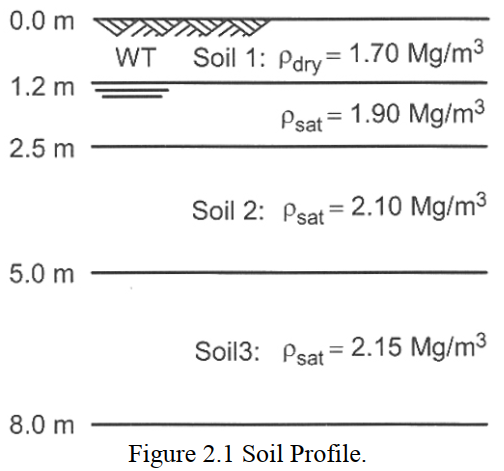- Psat 2.1 10 User Manual Free
- Psat 10 Coordinator Manual
- Psat 2.1 10 User Manual Pdf
- Psat 2.1 10 User Manual Answers
Coordinator Manual. Completing the tasks in During the Test 1 Part. Using This Manual Introduction. PART 1: For Test Coordinators This manual is split into two parts. Part 1: For Test Coordinators. Covers everything test coordinators need to know and do. Tm 10-4210-235-13 technical manual headquarters department of the army no. 10.4210-235-13 washington, d.c, 30 september 1994 technical manual operator's, unit, and direct support maintenance manual fire suppression equipment set model fses-1 (nsn 4210-01-370-4912) reporting errors and recommending improvements you can help improve this manual. Download federico milano psat manual - for iPhone google guidebook on 1m.pointq.site.
| Mission type | Communications |
|---|---|
| Operator | U.S. Naval Academy |
| COSPAR ID | 2019-036R[1] |
| SATCAT no. | 44354 |
| Mission duration | 1 year, 11 months and 9 days |
| Spacecraft properties | |
| Bus | CubeSat (1.5U) |
| Launch mass | 2 kilograms (4.4 lb) |
| Start of mission | |
| Launch date | 25 June 2019, 06:30 UTC |
| Rocket | Falcon Heavy |
| Launch site | KennedyLC-39A[2] |
| Contractor | SpaceX |
| Orbital parameters | |
| Reference system | Geocentric |
| Regime | Low Earth |
| Semi-major axis | 6,941.0 kilometres (4,312.9 mi) |
| Perigee altitude | 309.8 kilometres (192.5 mi) |
| Apogee altitude | 831.1 kilometres (516.4 mi) |
| Inclination | 28.5306° |
| Period | 95.9 minutes |
| Epoch | 3 February 2020[3] |
| Transponders | |
| Band | FM |
PSAT-2 is an experimental amateur radio satellite from the U.S. Naval Academy, which was developed in collaboration with the Technical University of Brno in Brno, Czech Republic. AMSAT North America's OSCAR number administrator assigned number 104 to this satellite; in the amateur radio community it is therefore also called Navy-OSCAR 104, short NO-104.
Mission[edit]

PSAT-2 was launched on June 25, 2019 with a Falcon Heavy from Kennedy Space Center, Florida, United States, as part of Mission STP-2 (Space Test Program 2) as one of 24 satellites.
Frequencies[edit]

The following frequencies for the satellite were coordinated by the International Amateur Radio Union:

- 145.825 MHz - Uplink and downlink APRS digipeater, 1200 bd (N/A due to VHF transmitter failure)
- 435.350 MHz - Downlink PSK31 and SSTV
- 29.4815 MHz - Uplink PSK31
See also[edit]
References[edit]
- ^Jonathan McDowell. 'Launch Log'. Jonathan's Space Page. Retrieved 3 February 2020.
- ^Gunter Dirk Krebs. 'PSat 2 (Navy-OSCAR 104 / NO 104)'. Gunter's Space Page. Retrieved 3 February 2020.
- ^n2yo.com. 'OBJECT U'. Retrieved 3 February 2020.
Psat 2.1 10 User Manual Free
External links[edit]
- PSAT2 - Amateur Radio Communications Transponders. APRS
- PSAT2 SSTV camera and transponder homepage, pictures and tlm archive.

The Power System Analysis Toolbox (PSAT) is a Matlab toolbox for electric power system analysis and simulation. The command line version of PSAT is also GNU Octave compatible. All operations can be assessed by means of graphical user interfaces (GUIs) and a Simulink-based library provides an user-friendly tool for network design.
PSAT is ditributed under the General Public License (GPL) and comes with no warranty conditions. The latest PSAT version can be downloaded here.
The main features of PSAT are: Power Flow; Continuation Power Flow; Optimal Power Flow; Small Signal Stability Analysis; Time Domain Simulation; Complete Graphical User Interface; User Defined Models; FACTS Models; Wind Turbine Models; Conversion of Data Files from several Formats; Export results to EPS, plain text, MS Excel and LaTeX files; Interfaces to GAMS and UWPFLOW Programs; Command Line Usage; and GNU Octave Compatibility.
Psat 10 Coordinator Manual
Abrief introduction to PSAT is available here. This presentation was given at the first IEEE panel session on Open Source Software at the PES Meeting of Montreal, Canada, on June 20, 2006. A didactical tutorial to PSAT is available here.
Psat 2.1 10 User Manual Pdf
Letters of reference for PSAT are available here. If your University, Institution or Company is using PSAT, please send me a letter of reference. These letters are important for me in order to request funds to my University and, in turn, to keep developing PSAT.
Psat 2.1 10 User Manual Answers
The PSAT documentation is no longer provided for free. Please contact me for getting the details on how to obtain the full PSAT manual as well as any other assistance on PSAT. I am also available for defining as hoc appointments for developing specific features currently not implemented in PSAT.